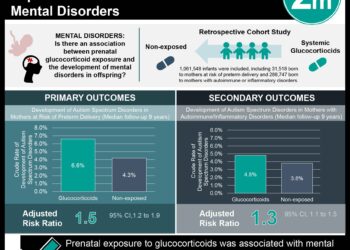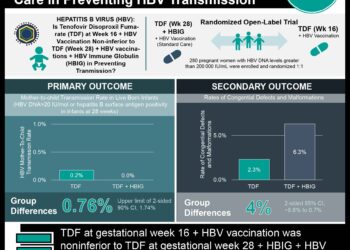#VisualAbstract: Ursodeoxycholic acid versus placebo in women with intrahepatic cholestasis of pregnancy (PITCHES)
Studies have shown that intrahepatic cholestasis of pregnancy is associated with poor birth outcomes and neonatal unit admission. Ursodeoxycholic acid, which increases bile acid excretion, forms the mainstay of treatment, however, the evidence for its use is limited. In this double-blind, multicentre, randomized controlled trial, 605 women with intrahepatic cholestasis of pregnancy were randomized to receive ursodeoxycholic acid or placebo to evaluate whether ursodeoxycholic acid reduces adverse perinatal outcomes in this patient population. The primary outcome was a composite of perinatal death (in-utero fetal death after randomization or death up to 7 days after birth), preterm delivery, or neonatal unit admission for at least 4 hours after birth up to hospital discharge. Researchers found that the primary outcome occurred in 23% of infants in the intervention group as compared to 27% in the placebo group (RR 0.85, 95% CI 0.62 to 1.15). This study therefore shows that treatment with ursodeoxycholic acid does not reduce adverse perinatal outcomes in the setting of cholestasis of pregnancy. While some subgroups of women may respond to ursodeoxycholic acid, the lack definitive evidence regarding its efficacy should preclude its routine clinical use.
Click to read the study in Lancet
©2019 2 Minute Medicine, Inc. All rights reserved. No works may be reproduced without expressed written consent from 2 Minute Medicine, Inc. Inquire about licensing here. No article should be construed as medical advice and is not intended as such by the authors or by 2 Minute Medicine, Inc.







